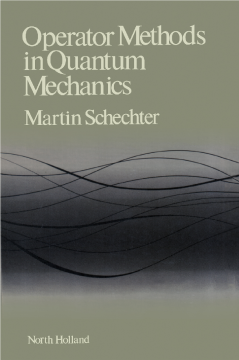
Additional Information
Book Details
Abstract
Operator Methods in Quantum Mechanics demonstrates the power of operator theory as a tool in the study of quantum mechanics. More specifically, it shows how to use algebraic, representation-independent methods to solve one- and three-dimensional problems, including certain relativistic problems. It explains the applications of commutation relations, shift operators, and the virial, hypervirial, and Hellman-Feyman theorems to the calculation of eigenvalues, matrix elements, and wave functions.
Organized into 16 chapters, this book begins by presenting a few simple postulates describing quantum theory and looking at a single particle moving along a straight line. Then, it introduces mathematical techniques that answer questions about the particle. It also discusses the use of spectral theorem in answering various questions concerning observables, along with negative eigenvalues and methods of determining parts of the spectrum or estimating lower bounds. Moreover, it explains the time-independent or stationary-state scattering theory and states, long-range potentials, and completeness and strong completeness. Oscillating potentials, eigenfunction expansions, restricted particles, hard-core potentials, the invariance principle, and the use of trace class operators to treat scattering theory are also described in this book.
This volume is a valuable resource for physicists, as well as students of intermediate quantum mechanics and postgraduate students who want to be acquainted with the algebraic method of solving quantum mechanical problems.
